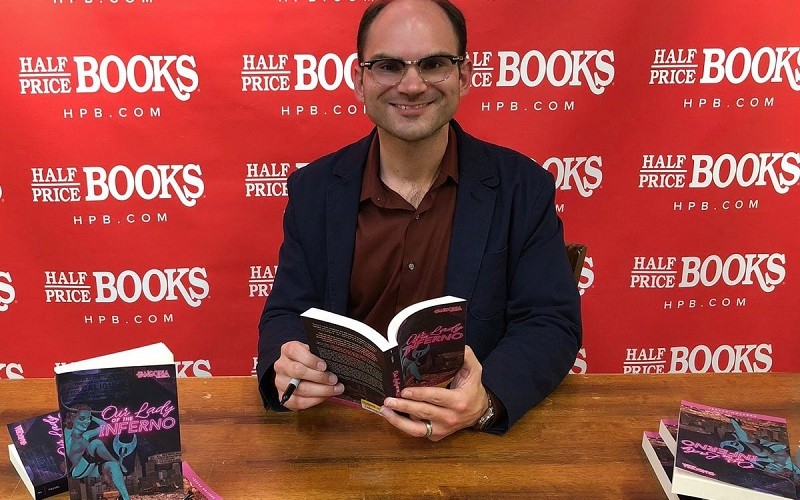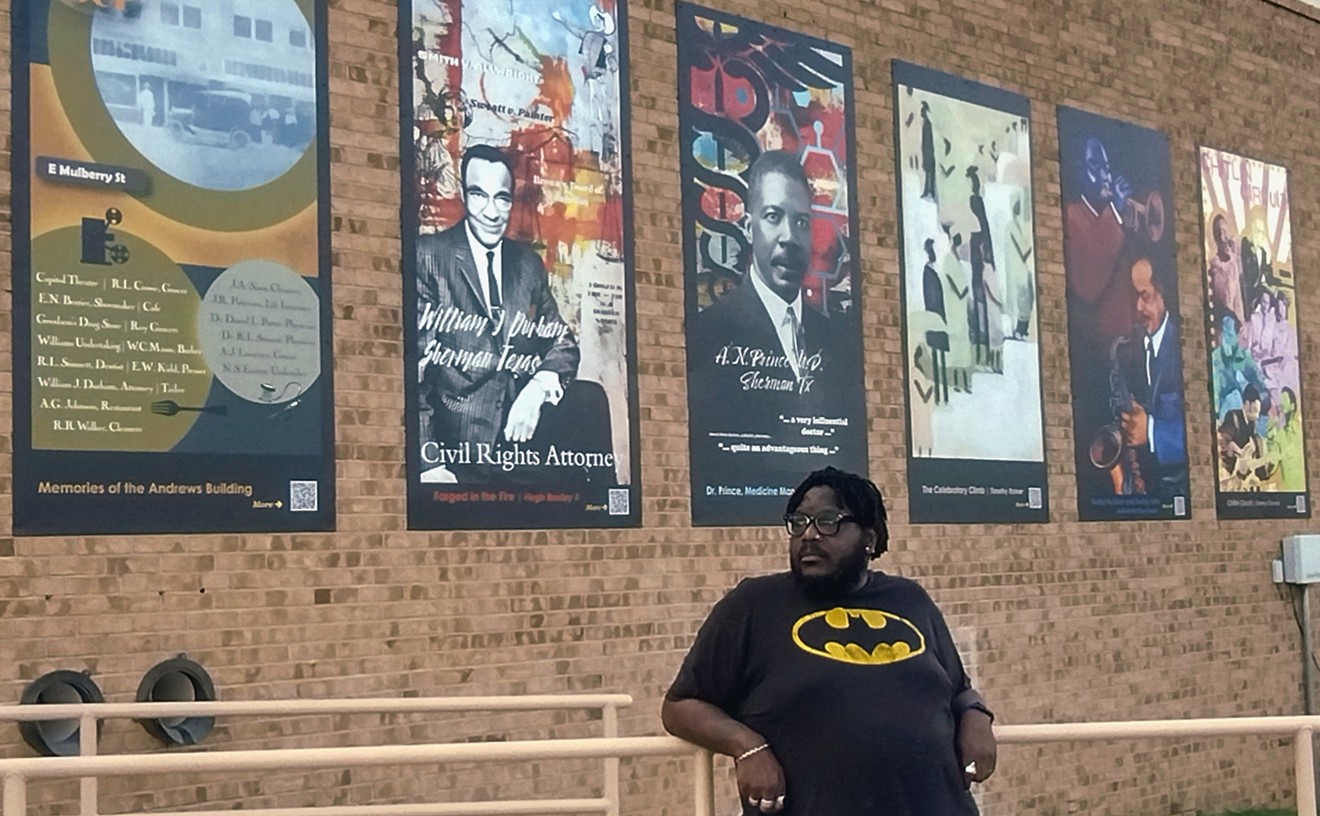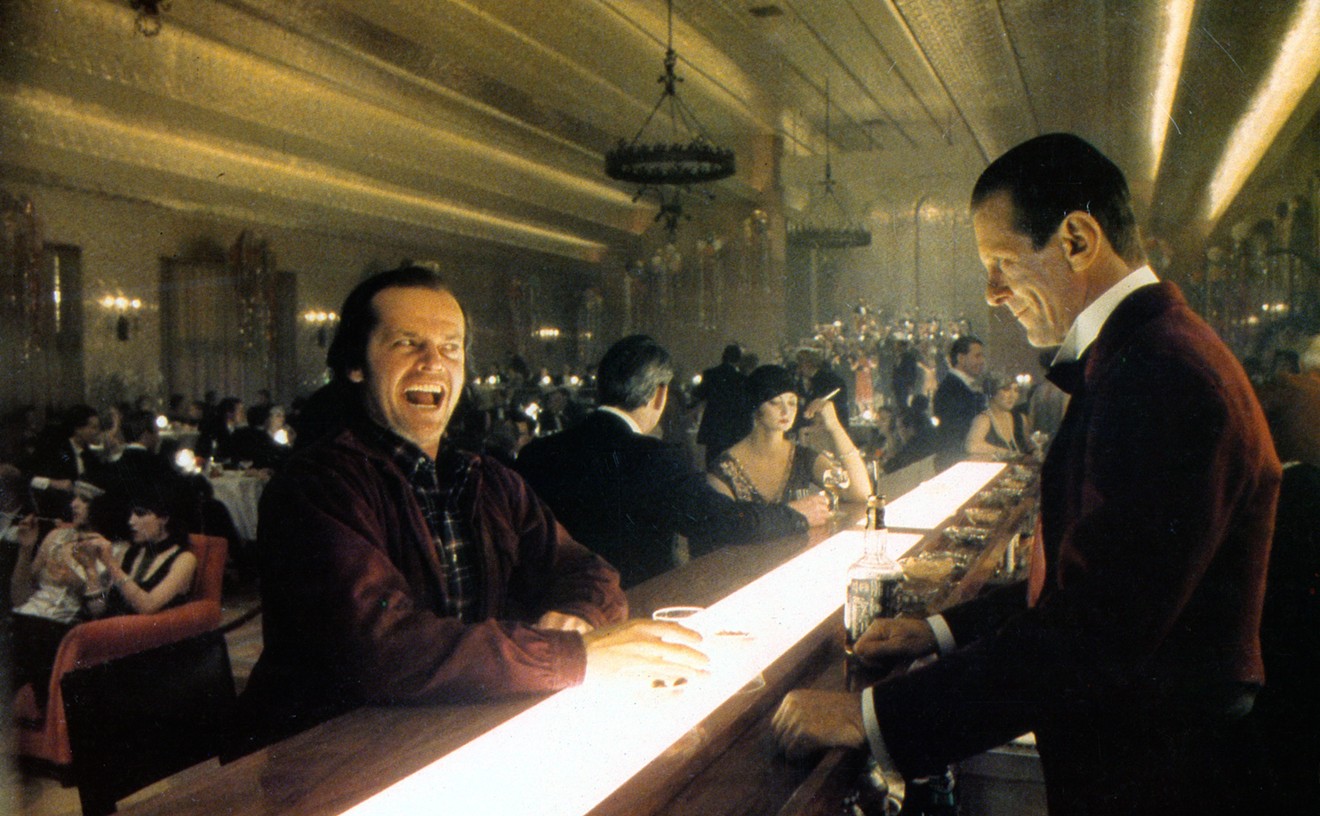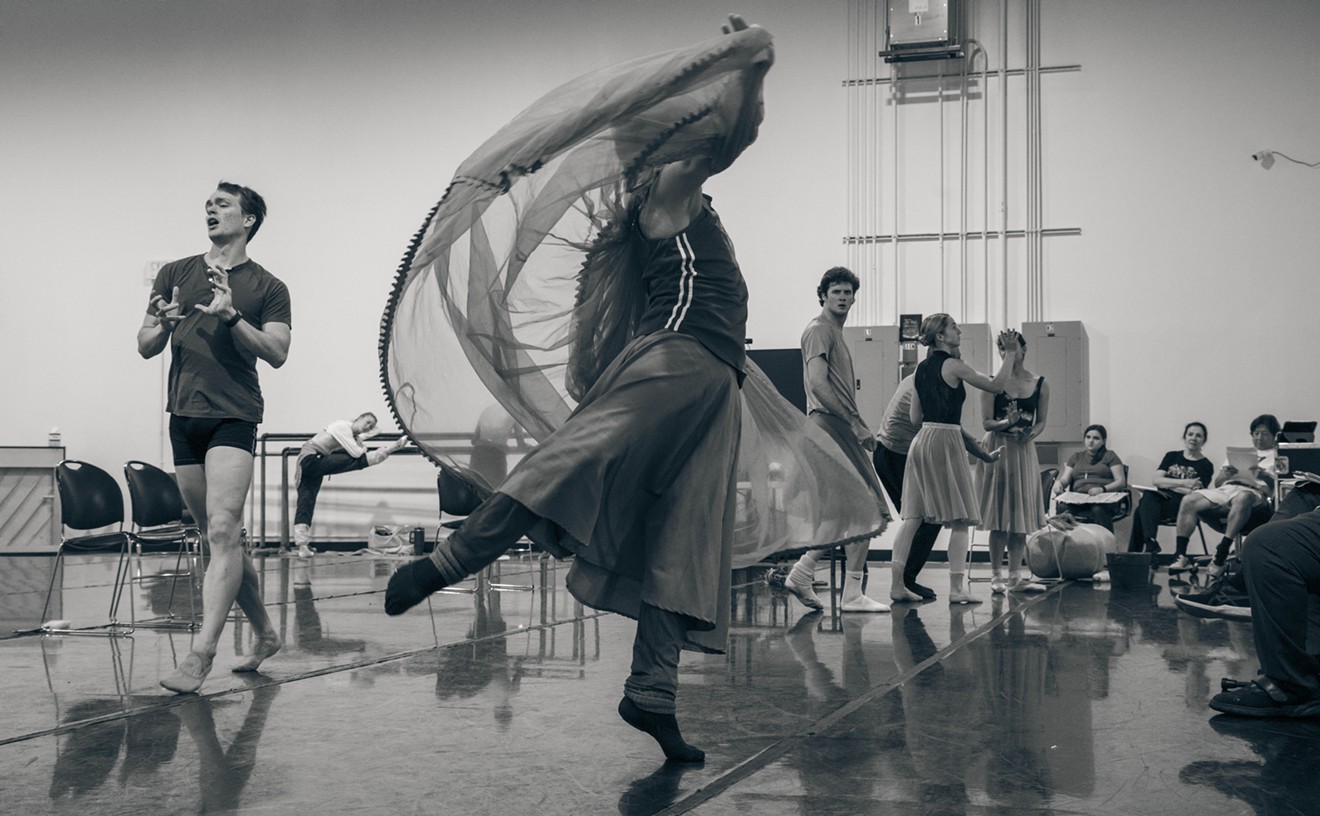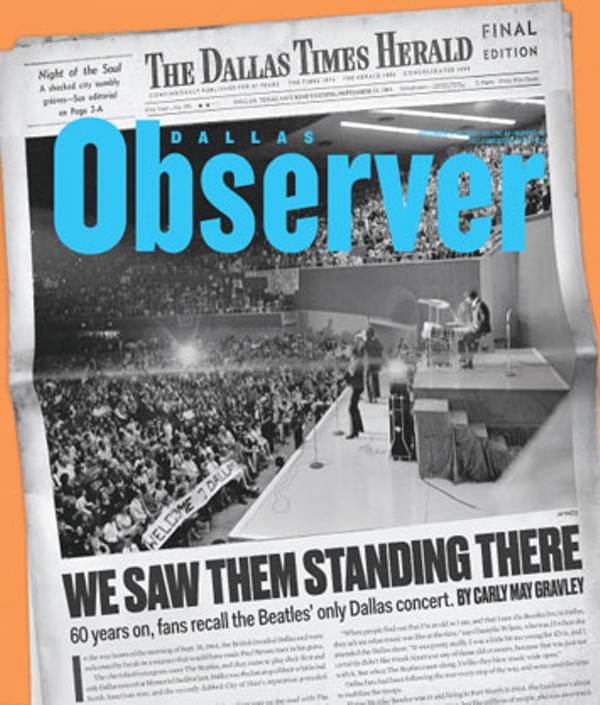Preston Fassel is one of the premier cult horror authors in Dallas. He also loves horror movies. Like, really loves them. His last novel, Beasts of 42nd Street, follows a seedy underworld built around the classic grindhouse scene in New York. For Fassel, horror movies aren’t just inspiration for his fiction, they’re therapy.
“Horror provides a displacement for us,” he says. “The movies coming out during culture eras are appealing to people of that time. Amityville and The Shining, these were about people unable to leave a house because of economic stress. People in the suburbs were feeling the same thing. They were struggling to pay bills, and they started watching horror movies about others in toxic environments.”
His most recent book is nonfiction. Necessary Death: What Horror Movies Teach Us About Navigating the Human Experience was co-written with counselor Chris Grosso and released last Halloween. The book explores a variety of horror films and franchises, showing how each of them teaches an emotional lesson that can help alleviate stress. The pair end each chapter with mindfulness exercises.
Many of us found ourselves depressed during the early days of the COVID pandemic, and some turned to film, even horror. A LOT of horror. As Fassel says in his book, horror had an incredible emotional impact. Discharging anxieties through manufactured scares could even out our moods. Watching monsters fall to the hands of protagonists might provide us with hope against our own troubles.
There’s some science behind this as well. Leigh Richardson, the founder and director of the Brain Performance Center in Dallas says, “Anticipating the fear changes the way neurons synchronize in the threat response network. You’re on the couch, you’re very safe, got your blanket over your head. But at the end of the movie, you’re safe and the world looks a lot less scary. People who are anxious tend to like horror flicks.”
Fassel lays out the ways this applies throughout Necessary Death. The book opens with a deep dive into the Nightmare on Elm Street franchise. Unlike most horror series, Nightmare consistently sees its protagonists grow stronger and more able to combat dream demon Freddy Krueger. By Dream Warriors, the would-be victims are manifesting powers to equal Krueger’s own. It’s a strangely heartening experience when dissected.
For Fassel, Friday the 13th was the movie series that helped his mental health. He’d grown up watching mostly indie horror from the local video store, missing the popular franchises. In college, during an emotional downslope, he vowed to try the classics of the 1980s and found that they had a lot of hidden meaning.
Scared to Depth
“The movies helped me unpack the emotional baggage from my childhood,” he says. “Jason Voorhees is an abused child. He is a kid who went through this incredible amount of trauma and became a kind of golem. He is the worst example of what becomes of kids who are abused. Everyone likes to indulge in these power fantasies where you could be the bad guy for a day. There’s an escapism to it.”Horror reflects the era in which it’s made. Dracula came out in 1931, two years into the Great Depression. Audiences were ready to watch a parasitic nobleman be hunted and exterminated by the people he preyed on. The social upheaval of the 1960s and '70s led to a golden age of horror.
The weird anti-Nixon themes in Texas Chain Saw Massacre and the great demonic movie boom that reflected fears of the loss of the traditional family were potent cultural milestones thanks to horror. We’re now living through a similar period. Consequently, horror is better than it has been in decades.
“Until recently, horror had a niche appeal,” says Fassel. “You had your mainstream stuff, the [TV company] Platinum Dunes remakes, but outside of that the genre was a subversive thing. In recent years, there’s an explosion on the mainstream with people like Jordan Peele and Ari Aster. It’s the Trump era, the Black Lives Matter era and horror is rising to comment on that.”
It’s understandable if the state of the nation has you down. You’re not alone. Horror movies know that it’s a scary time to be alive. They let us practice terror so we can face it when our backs are against the wall. Fassel’s book is a fantastic template for looking through a horror lens to find peace and healing. God knows we need it now.

